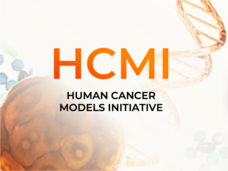2018 - Updates & Insights Blog
-
FASMIC: An Integrated Bioinformatics Resource for Functional Annotation of Somatic Mutations in Cancer
Next-generation sequencing studies identified thousands of somatic mutations in tumor cells.
-
Collecting and Harmonizing Clinical Data Across an International Initiative
The Human Cancer Models Initiative (HCMI) is an international consortium with the goal to produce and distribute up to 1,000 novel human cancer models.
-
Quantifying the Timing of Metastatic Progression from Patient Genomic Data: Spatial Computational Inference of MEtastatic Timing (SCIMET)
Metastasis, the systemic spread of malignancy to an organ other than the primary site of cancer, is the chief cause of cancer related death. Consequently, understanding and controlling metastasis is one of the most pressing issues in cancer medicine.
-
Pediatric Genomic Data Inventory: A Valuable Resource of Pediatric Cancer Projects
Each year, more than 200,000 children and adolescents under the age of 20 are diagnosed with cancer worldwide1.
-
From Ignoring Features to Machine Learning Features: Computational Biology Then and Now
Dr. John Weinstein discusses progress in computational biology over the 12-year span of TCGA. The field has expanded greatly, with researchers taking on more complex problems and trying different approaches.
-
The Genomic Data Commons Turns 2: Progress in Clinical Tool Development
The Genomic Data Commons (GDC) launched two years ago with the goal to build a collaborative, interactive knowledge system that anyone can use. Dr. Lou Staudt reflects on milestones reached at the GDC’s two year anniversary and challenges ahead in building clinically relevant tools and advancing precision medicine.
-
After TCGA: Building Clinical Genomic Resources
The Center for Cancer Genomics (CCG) continues to build genomic resources with a special focus on clinical features and patient outcome. A new wave of cancer characterization projects will generate data relevant for precision medicine and build on the legacy left by The Cancer Genome Atlas, which officially concluded in April 2018.
-
Office of Cancer Genomics: Integration of Structural, Functional, and Computational Genomic Data Advances Precision Oncology
A collaborative study conducted by two Office of Cancer Genomics (OCG) initiatives highlights the importance of integrating structural and functional genomics programs to improve cancer therapies, and more specifically, contribute to precision oncology treatments for children.
-
Understanding the Other Side of Research
For over seven years, the Office of Cancer Genomics (OCG) has supported recent doctoral graduates through internship and fellowship programs.
-
Challenging Experiences in Expanding Opportunities: The Burkitt Lymphoma Genome Sequencing Project in Brazil
Burkitt Lymphoma (BL) is an aggressive B-cell lymphoma involving dysregulation of the MYC oncogene by chromosomal translocations. It is most common in children but also affects adults and occurs in sporadic, endemic, and HIV-associated forms.









